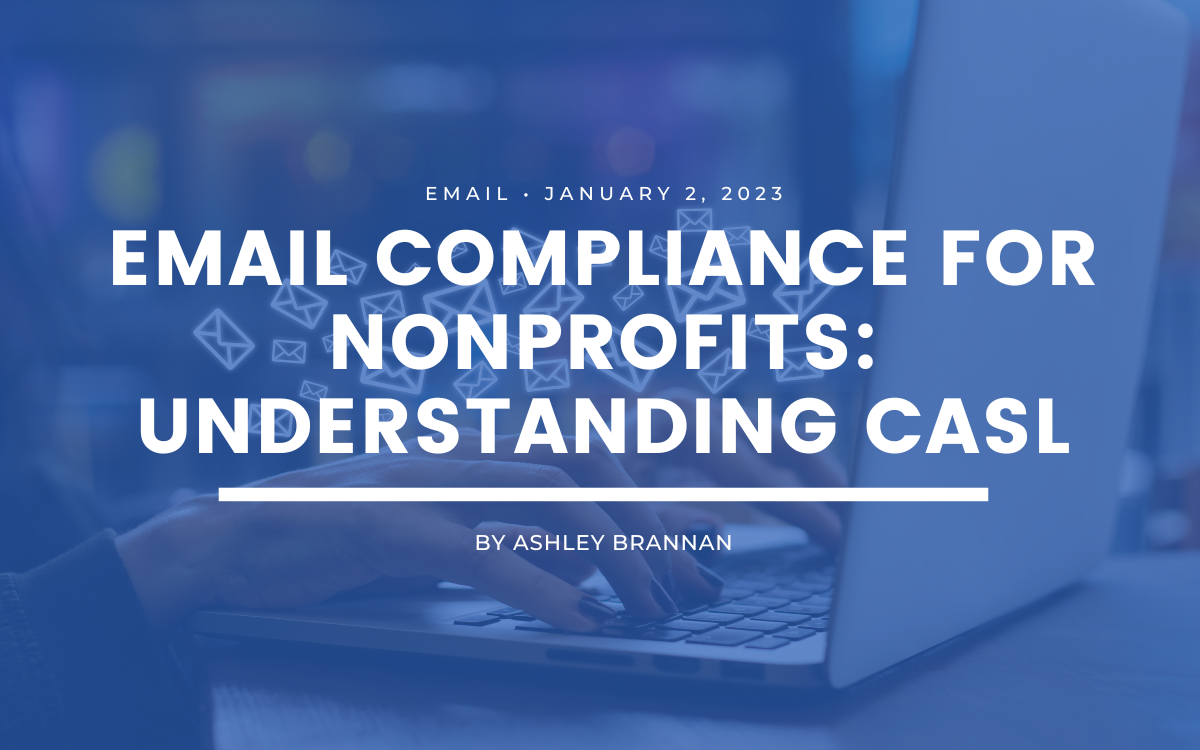Email Compliance For Nonprofit Organizations: Understanding CASL
3 min to read ✭
CASL (Canada’s Anti-Spam Legislation) is a set of laws that regulate commercial electronic messages (CEMs) in Canada. This includes emails, text messages, and other forms of electronic communication that are used for the purpose of promoting a product or service. While CASL applies to all organizations that send CEMs, it is especially important for nonprofits to be aware of these email compliance laws and ensure that they are following them.
Nonprofits often rely on email to communicate with their donors, volunteers, and other stakeholders. However, it’s important for organizations to ensure that they are not violating CASL by sending unsolicited or misleading emails. Nonprofit email compliance is crucial to maintain trust with donors and avoiding potential legal consequences.
CASL Requirements
So what does CASL require of nonprofit organizations? Here are some key points to keep in mind:
1. Obtain consent:
Nonprofits must obtain express or implied consent from recipients before sending them a CEM. Express consent means that the recipient has explicitly agreed to receive emails from the organization. Implied consent, on the other hand, means that the recipient has a relationship with the organization and it is reasonable to expect that they would want to receive emails from the organization.
2. Clearly identify the sender:
CASL requires that the sender of a CEM be clearly identified, including the sender’s name and contact information. This helps recipients understand who the email is from and how to get in touch with the organization.
3. Include an unsubscribe option:
Nonprofits must include an unsubscribe option in all CEMs, allowing recipients to opt-out of receiving future emails from the organization. This is important to respect the wishes of recipients who no longer want to receive emails from the organization.
4. Avoid misleading or false subject lines:
CASL prohibits the use of false or misleading subject lines in CEMs. This means that nonprofits should not use subject lines that are designed to trick recipients into opening the email.
By following these guidelines, nonprofit organizations can ensure that they are in compliance with CASL and avoid any potential legal consequences. It’s important for nonprofits to be aware of these laws and to carefully consider their email strategy to ensure that they are not violating CASL.
In summary, nonprofit email compliance is essential to ensure that organizations are following the laws and regulations surrounding commercial electronic messages. By obtaining consent, clearly identifying the sender, offering an unsubscribe option, and avoiding misleading subject lines, nonprofits can avoid any potential legal consequences and maintain trust with their donors and stakeholders.






